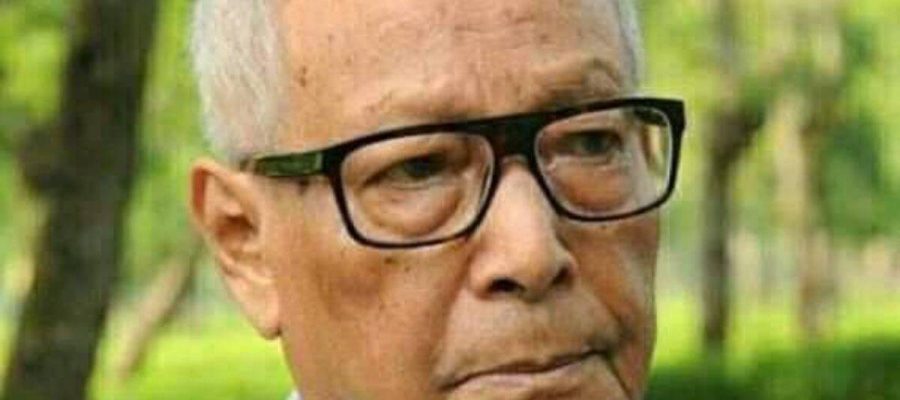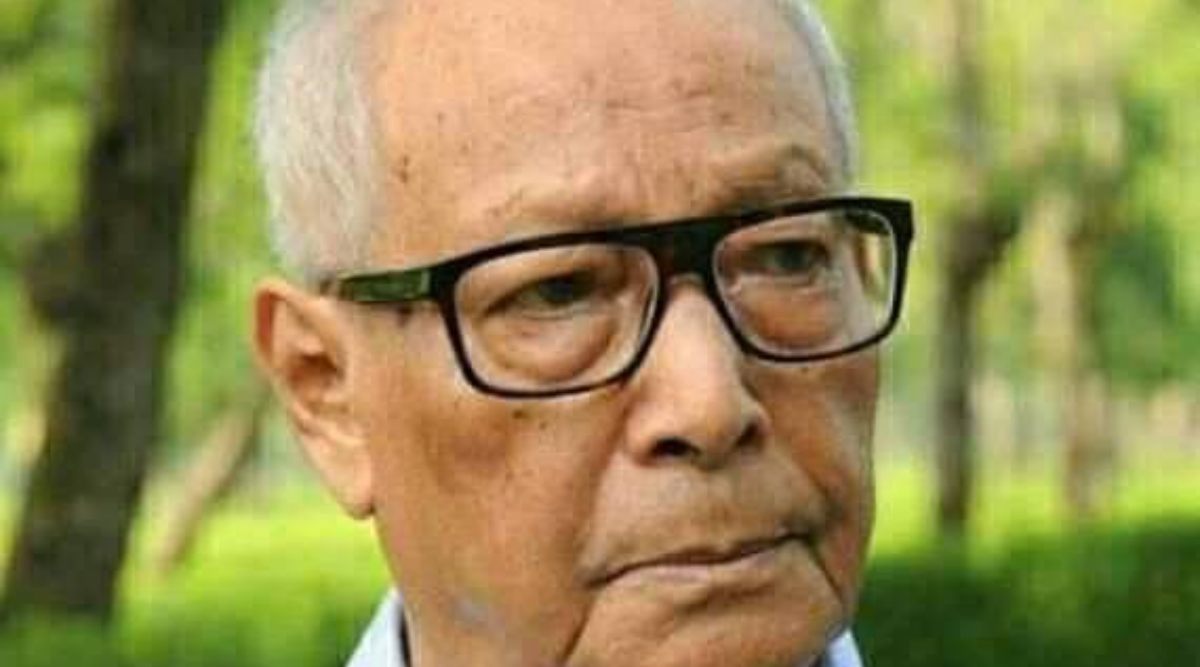A former president of the state’s apex literary body Asam Sahitya Sabha, Homen Borgohain has written at least 11 novels in Assamese and served as the editor-in-chief of two major Assamese dailies, Amar Asom and Niyomiya Barta, among others.
Renowned Assamese author and journalist Homen Borgohain died of a cardiac arrest on Wednesday morning in Guwahati. He was 88.
Borgohain, a Sahitya Akademi awardee, had tested positive for Covid-19 last month. He later tested negative and was discharged from the hospital on May 7.
Borgohain was said to have been recovering at home but fell from his bed on Tuesday night and fell unconscious. He was rushed to a private hospital in Guwahati where he breathed his last.
A former president of the state’s apex literary body Asam Sahitya Sabha, Borgohain has written at least 11 novels in Assamese and served as the editor-in-chief of two major Assamese dailies, Amar Asom and Niyomiya Barta, among others.
Following his death, Prime Minister Narendra Modi paid his condolences on Twitter: “Shri Homen Borgohain will be remembered for his rich contributions to Assamese literature and journalism. His works reflected diverse aspects of Assamese life and culture. Saddened by his passing away. Condolences to his family and admirers. Om Shanti.” Assam Chief Minister Himanta Biswa Sarma also paid his respects, describing Borgohain as an “epochal figure in Assamese literature” and directed that his last rites be performed with full state honours.
Born December 7, 1932m in a village in Lakhimpur district, Borgohain left an Assam Civil Services job to become a journalist in the early 1970s.
His career began at the Assamese paper, Nilachal. “With that, for the first time, the Assamese public got an anti-establishment paper. That sort of journalism was uncommon then,” said Prasanta Rajguru, veteran Guwahati-based journalist, who closely worked with Borgohain in Amar Asom.
Borgohain was also a staunch critic of the 1975 Emergency. “He would publish blank editorials during the censorship, and once the Emergency was lifted, he exposed a number of events that occurred during the period,” he said.
Rajguru said that Borgohain did not shy away from expressing political opinions which many would have considered unpopular. For example, Borgohain was critical of the Assam Agitation, the six-year-long anti-“foreigner” mass movement of the early 1980s.
“He was of the opinion that the movement was detrimental to the social fabric of Assam. He condemned the atrocities on immigrant Muslims and said that it had derailed the agitation,” said Rajguru.
In the early 1980s, Borgohain translated Myron Weiner’s Sons of the Soil to Assamese and published parts of it in Nagorik, the weekly he edited. “Many agitators read this, and it inspired the movement, which was initially directed against all non-Assamese. His writings stressed that it should not be against all non-Assamese but those who had entered ‘illegally’. He often questioned why immigrant people who came before 1971 were being antagonised,” said Rajguru.
In the 1980s, Nagorik shut down and Borgohain was out of work. Following that, he worked in a Bengali language newspaper. He served as the editor-in-chief of Amar Asom from 2005 to 2015, after which he joined Niyomiya Barta, and held the top post till his death.
In 2000, Borgohain was accused of sexual harassment case by a fellow woman journalist. However, the case was not carried forward.
Rajguru said that Borgohain envisioned an inclusive Assamese society, and worked towards strengthening relations between tribals and non-tribals. “He would visit hill areas, report on their issues and try to introduce them to the mainstream Assamese groups,” he said.
Borgohain’s first novel Subala (1963) was an instant hit and triggered controversy as it was based on the life of a sex worker. His most well-known novel is Pita Putra, which got him the Sahitya Akademi award in 1978.
In 2015, he symbolically returned the award, protesting against the lynching in Dadri. His wife, author and journalist Nirupama Borgohain, who he was separated from, had also returned her Sahitya Akademi award. They have two sons.
“His contribution to Assamese literature is immense,” said Kuladhar Saikia, Asam Sahitya Sabha president and former Assam Police DGP. “Apart from the uniqueness of his style of writing, his treatment of different themes and issues were impactful — socially, politically and economically. He was a fearless writer and much of his writing represented his personal experiences in a free, frank and candid manner.”
Source: Read Full Article


